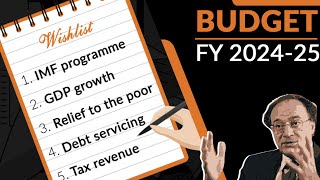Against a backdrop of militant bombs and bullets, wealthy young Pakistanis are turning to the beat of modern music to help bring social change to their troubled Muslim nation. "I love how when you enter the place, you're completely transformed," said DJ Faisal Big at a recent all-night rave in a brick factory courtesy of London's Ministry of Sound.
"It doesn't feel like Pakistan - definitely not the Pakistan you see on the media." The one-off Ministry of Sound event cost $100 dollars, an expensive night out in the impoverished country - but the mini-revolution has spread far beyond the brick factory doors.
Organisers persuaded the famous London night-club, billed as the home of dance music and celebrating its 20th anniversary this year, to send over a DJ to lead a club for one night only.
The youth music scene in a deeply conservative Islamic state, dogged by deadly Taliban and al Qaeda attacks, is opening up to new influences - offering anger-release and a space for political expression.
The cultural capital of Lahore is centre-stage for young people looking to modern music for a break from stifling militancy and political crises. Close to a preaching centre for Muslim scholars and former prime minister Nawaz Sharif's estate, many spend Saturday nights dancing at farmhouses and makeshift clubs on Raiwind road leading to the countryside outside Lahore.
"This is Pakistan, my Pakistan, the changing Pakistan... no more bombs, no more terrorism, our society is changing," said Tahir Ali, dancing at the Ministry of Sound event on Raiwind road.
"You will see, one day the whole Pakistan will change, we will change our country, we will bring revolution over here and we will get rid of extremism," said Zoobia, dancing with her cousin Umair as dawn broke.
Across town, there is a very different atmosphere but one that is also a world apart from traditional Pakistani music.
In Model Town, the neighbourhood where a 70-year-old American aid expert was kidnapped at gunpoint from his home last week, youngsters gather to bury their frustration in heavy metal.
But this is not a popular revolution - these are the sons and daughters of some of the wealthiest families in Pakistan, taught at expensive English private schools, performing to each other in a school auditorium.
"Heavy metal is a way to express anger about what's happening to the country," said Zain, a guitarist in increasingly popular band Takatak, named after the sound of a knife chopping up goat genitalia.
The band's six heavy-metal lovers believe that the drums and music not only ease frustration, but help others speak out.
"We have terrorism. We have bombs. We have drones. We have no education, suicide bombers. There's the Taliban. There's the government - we're not going to play Beatles in a warzone, are we?" said the band members, interrupting each other before heading to the show.
Gig organiser Younas Chowdhry estimates that there are more than a hundred underground bands in Lahore, Karachi and Islamabad, the three major cities.
Bands organise their own gatherings and perform privately, with the general public largely unaware of what's going on behind the curtains and in basements.
"They want society to open up, they want a revolution and change of the country's image from a terrorland to a modern vibrant nation and they are sending this message across through music," said Chowdhry.
"For the general public, it is like loud noise. But the youth is getting our message, our music is getting popular and our message is being conveyed, we are heading towards change and youngsters are ready to play a role," said Misbah, another Takatak member.
Then there is the band Laal, which means red and is the long-standing voice of Pakistan's tiny communist party, also used to organising concerts to gather people for public meetings.
Lead singer Taimur Rahman combines classical poetry with a more contemporary style and has successfully motivated peasants into campaigning for ownership of the land they cultivate occupied by the military.
Now he's getting even more political, satirising the corruption of politicians and Pakistan's failure to address terrorism or find Osama bin Laden, who was shot dead by US special forces within the country on May 2.
"At a mass level now, young people are wanting to be involved in politics and wanting to be engaged and so there is this sort of change. "If it's not being reflected at the level of the street it's only because of terrorism," said Rahman. He says there is a long history of music as an instrument of social change in the spiritual Sufi tradition of Islam in the region.
But academics are more circumspect about the power of the tiny elite to change society in a country where the literacy rate is 57 percent and the mosques are better at mobilising the street than secular causes. "It may not be an effective antidote to extremism but it is a first step towards rebuilding a tolerant Pakistan," Tariq Rahman, who teaches Pakistan studies at Quaid-i-Azam University in Islamabad, wrote recently.
"If they continue with their gatherings and attract more and more young people and succeed to reach the masses in a decade, we can say that they can bring a social change and a revolution," he told AFP.
BR100
7,583
Increased By
39.5 (0.52%)
BR30
24,238
Increased By
202.6 (0.84%)
KSE100
72,797
Increased By
207.9 (0.29%)
KSE30
23,213
Increased By
76.4 (0.33%)






















Comments
Comments are closed.